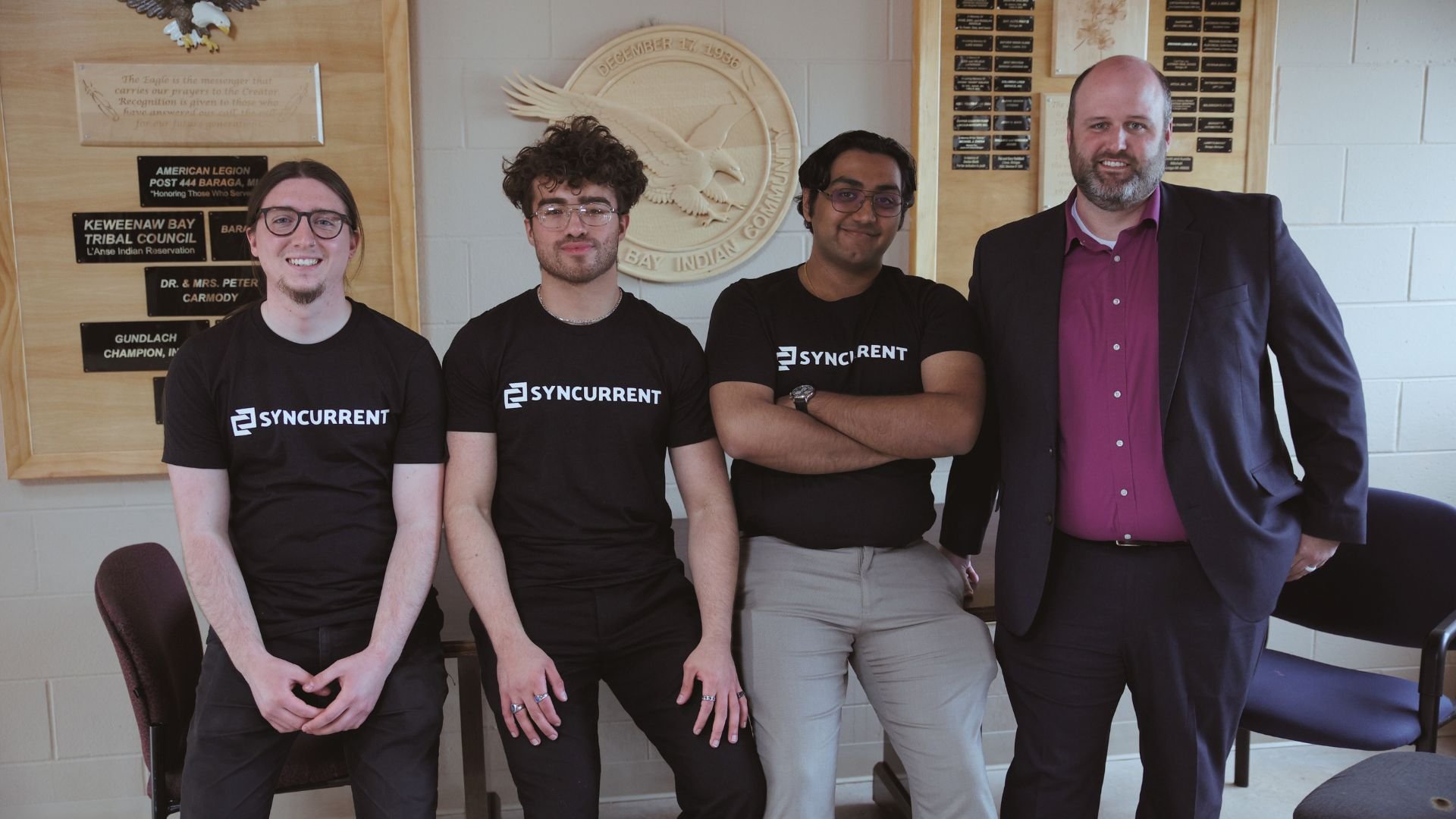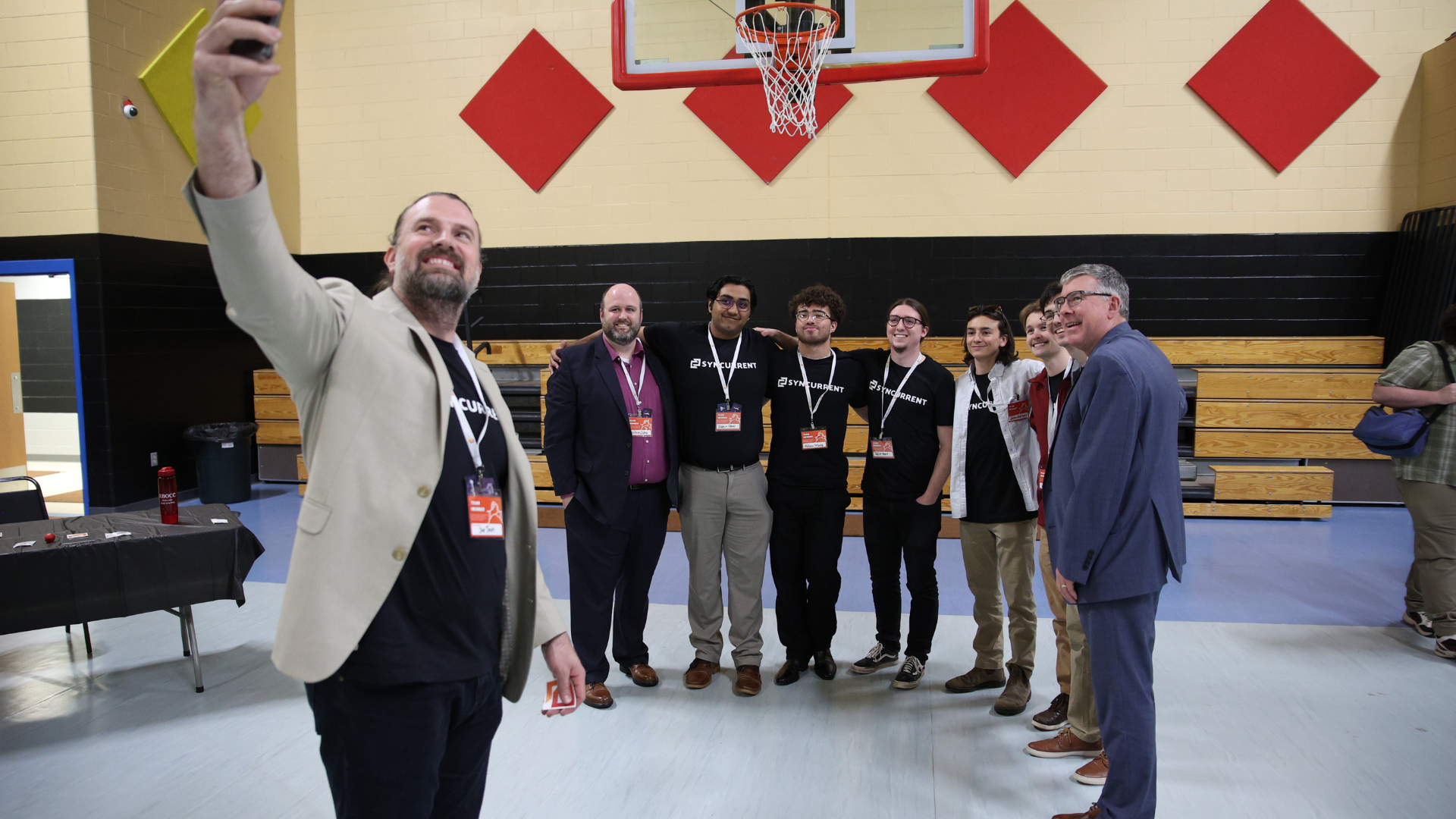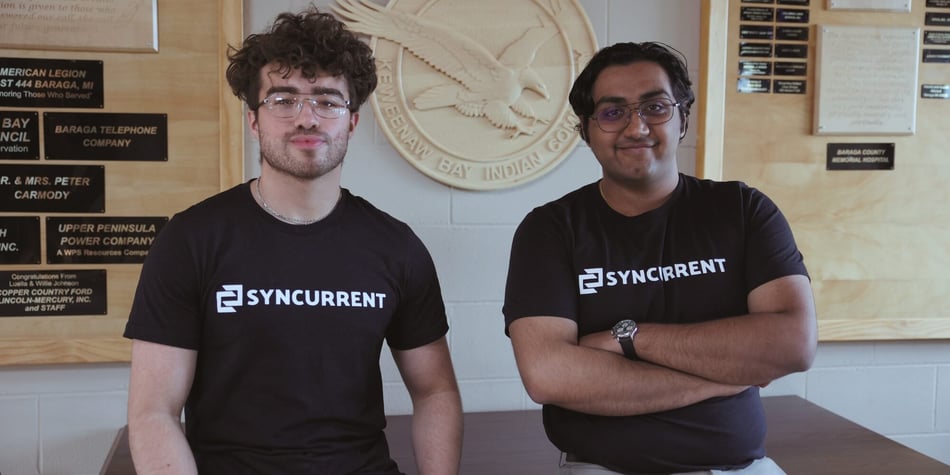Tribal Nations historically have flown under the radar when people think of markets in the United States. While the gaming industry is a notable aspect of Tribal economies, there’s an enormous amount of talent within these nations, and one company is helping drive innovation from the ground up.
To take a couple steps back, Tribal Nations are their own sovereign nations within the United States that have the right to govern themselves. Tribes have their own forms of leadership, their own businesses, and their own rules and regulations. Businesses in many Tribal Nations often consist of small- to medium-sized enterprises that address core needs in their own communities. Members are the first to know what needs in the community they can help address, building new ventures along the way.
This is exactly the kind of socio-economic landscape that inspired Dhruv Patel and Matthew Jaquez to start Syncurrent.
The two met while working on Dhruv’s first business, HIVE, a consulting business founded in 2019 to help rural entrepreneurs with product line expansion, change management, and more. During this time, Dhruv and Matthew discovered that entrepreneurs in rural communities often run into one or more of the three major barriers in building their business: access to education, guidance and capital.
One community that really stood out while doing customer discovery in building a solution to these barriers was Tribal Nations.
While in his undergraduate program at Northern Michigan University, Dhruv met Bazile Panek, a proud member of the Red Cliff Band of Lake Superior Ojibwe. Born and raised on the Red Cliff reservation in Wisconsin, Bazile has a deep connection to his culture and regularly attends ceremonies and cultural events to honor his ancestors and community. Through Bazile, Dhruv got to understand very acutely what Tribal Nations were. It was this experience that led Dhruv and Matthew to drive their customer discovery focus specifically around Tribal Nations and what solutions would fit their unique needs.

Syncurrent team (left to right): Bazile Panek, Matthew Jaquez and Dhruv Patel, with Syncurrent investor Austin Clark
Dhruv and Matt cold called and spoke with hundreds of different Tribal communities and Tribal councils to get a better sense of the problems, the market, and potential solutions. Not only did they talk with Tribal councils, but they also took the time to speak with all the different departments that make up a Tribal Nation.
“We believe entrepreneurs can come from anywhere, from any background,” said Dhruv. “We wanted to understand the ways Tribal communities already speak with their members, where trust is built, and then work with the Nation to transform that trust into building a community-wide belief that entrepreneurship is a possibility for any and all members.”
Through this discovery, they found all of the nations faced three challenges when starting a business: access to education, guidance and capital.
So Dhruv and Matt officially founded Syncurrent in 2022, and brought Bazile on board as the company’s Tribal Liaison & Educator.
“We believe entrepreneurs can come from anywhere, from any background.”
How Syncurrent Serves the Underserved Founder
More advanced, sophisticated and automated than HIVE’s original consulting model, Syncurrent is a platform that guides Tribal members step-by-step through building their own business. The platform teaches business fundamentals through interactive modules and learning. Not only does it teach founders about business, but it also helps founders learn more about themselves: their strengths and weaknesses that will help them build the best team around them.
Next, the platform takes the founder and the idea and roadmaps the entire business and walks the entrepreneur through three essential stages: 1) Ideation, 2) Market entry, and 3) Market growth.
“We give you strategies and a step-by-step playbook on being able to acquire more customers, and really get that capital for growth,” said Matt.
“Part of our implementation process is asking for feedback from community members, entrepreneurs and leaders across the community. We use this feedback to build out analytics to see the Tribe's economy in real time.”
As Matthew pointed out, Tribal leaders are responsible for managing self-determining Nations, so they have quite a bit of work on their plates everyday. Syncurrent believes its platform and analytics help automate some of the more technical stuff around economic development, which saves leaders time, energy and money.
Since its founding in 2022, Syncurrent has continued to grow its network, now actively working with a handful of Tribal Nations. Syncurrent and its Tribal partners are already starting to see some new businesses emerge from its platform and support services. Syncurrent has built relationships with organizations around the country that fit within their impact scope, like Michigan Founders Fund.
Supporting Innovative Natives
Through Bazile’s research at Northern Michigan University (he earned his B.S. in Native American Studies), and his continued travels and meetings with Tribal citizens, Bazile has met many Ojibwe business owners. One thing he’s found to be true for most of the business owners he’s had conversations with is that at least one part of the business is focused on or rooted in Ojibwe culture.
For example, he met with an entrepreneur who harvested and sold wild rice, maple syrup and maple sugar.
“These are things we’ve done traditionally since time immemorial,” said Bazile.
Something not so traditional for native entrepreneurs that Bazile recalled is a distillery owned and operated by an entrepreneur from Red Cliff, where Bazile is from.
“Alcohol was used as a tactic during the early treaty making era,” Bazile explained. “Colonizers would bring alcohol to Native people and basically get them drunk and then discuss these treaties. It has a hard past, and a distillery can seem like a stark contrast to Native American values.”
However, consistent with traditional environmental values, this first Native American-owned distillery in the U.S. buys blemished apples that can’t be sold in stores, and instead of letting them go to waste, they use them to make apple brandy.
“Despite that tough history with alcohol, you can see that even his values of the environment and the land are ingrained in the business. You can see that in many indigenous-owned businesses,” Bazile said.

Syncurrent team with Joe Thiel, CEO of Innovate Marquette at an event with Keweenaw Bay Indian Community at the Keweenaw Bay Ojibwa Community College
As we think about purchasing products that look like they were made by Native Americans, Bazile said, there’s a difference between Indigenous art, and art inspired by Native American culture. There’s a Seattle-based lifestyle brand called Eighth Generation, and their slogan is buy Inspired Natives®, not "Native-inspired." It’s important to be aware if businesses are actually owned by Native Americans and not just selling Native American-themed products.
If you’re interested in additional ways to support Tribal entrepreneurs, check out Native Governance Center or NDN Collective. As Syncurrent grows and the founders who use it grow their businesses, the team hopes to have a hub on their website where you can check out the native businesses they’re supporting and how you can support them too.
For now, Dhruv and Matthew continue to build Syncurrent and grow their footprint. Bazile also started his own business, Good Sky Guidance, to help public institutions, like state and federal agencies, respectfully engage with Tribal communities and integrate Indigenous knowledge into their many environmental projects.
Syncurrent just kicked off a new fundraising round in October, and they are on the path to raising a $5 million seed round for the company. To stay up to date with Syncurrent’s news and resources, follow them on LinkedIn and Innovate Marquette.
Get stories like this sent straight to your inbox





